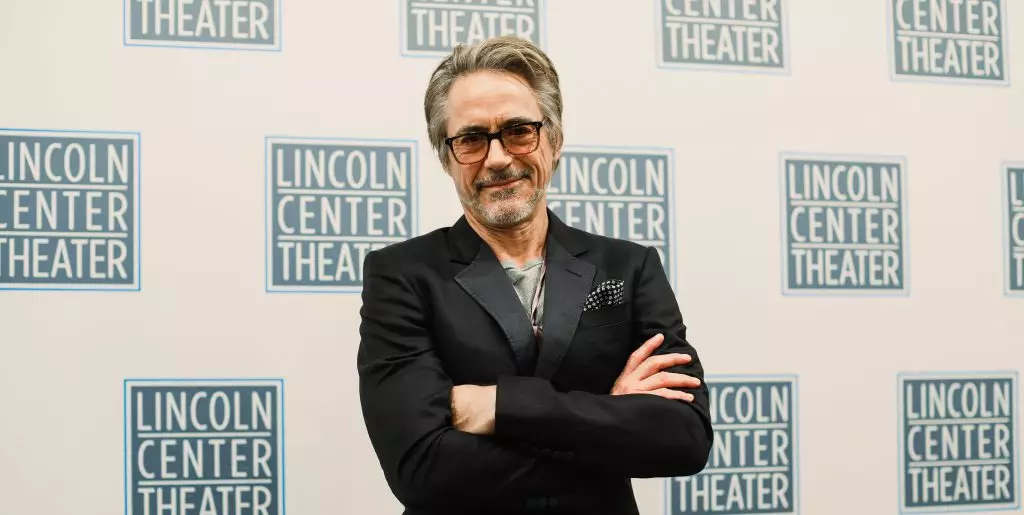In a rapidly evolving technological landscape, generative artificial intelligence (AI) has emerged as a controversial subject, especially when it comes to recreating the likeness of public figures. The ability to generate deepfakes and digital representations has raised ethical questions about consent, ownership, and the implications of manipulating one’s likeness without their explicit approval. Robert Downey Jr., a renowned actor with a legacy partially defined by his role as Tony Stark in the Marvel Cinematic Universe (MCU), has been vocal in his opposition to the use of AI for these purposes. His comments illuminate a complex intersection of artistry, ethics, and the essence of identity in an era increasingly dominated by technology.
During a recent appearance on the podcast “On With Kara Swisher,” Downey shared his thoughts on the implications of AI-driven recreations of his character. “There’s two tracks,” he explained, suggesting that while he recognizes the technological advancements taking place, he prioritizes his emotional life over digital distractions. This viewpoint encapsulates a broader concern that as artificial intelligence becomes more integrated into creative processes, it threatens to overshadow raw human experience and emotion. Downey’s insistence on the sanctity of the human experience serves as a reminder that behind every digital representation lies a real individual with feelings, ownership, and a narrative of their own.
Downey also conveyed a degree of confidence regarding the current decision-makers at Marvel. He expressed trust that they would respect his character and integrity, indicating that there are individuals who truly value the essence of what Tony Stark represents. However, he acknowledged the potential for future executives to exploit technology in ways that could compromise artistic integrity, further asserting, “I intend to sue all future executives just on spec.” This tongue-in-cheek remark highlights the tension between the evolving landscape of digital media and the notion of personal agency.
The Moral Complexity of AI Investments
In the same conversation, Downey discussed his involvement in AI ventures, pointing out that his interest isn’t merely about financial gain but rather a reflection on the people behind the technology. He emphasized the importance of evaluating the moral psychology of those involved and the intentions guiding their innovations. This perspective invites deeper reflections on the ethical ramifications of emerging technologies. As creators and stakeholders in this evolving field, the responsibility lies not only in what is being developed but also with whom the technology is being associated.
His commentary prompts an important dialogue about accountability in the tech industry—who gets the final say in how AI is used, and what ethical considerations govern its applications? Downey’s emphasis on the moral compass of developers speaks to a broader need for transparency and ethical standards in the tech space, especially regarding technologies that deal with personal identities and likeness.
As generative AI technology matures, it will surely continue to intersect with the world of celebrity culture. The ability to resurrect performances, create new narratives, or bring iconic characters back to life poses both exciting and disconcerting possibilities. Downey’s cautious attitude toward the exploitation of AI for celebrity likenesses serves as a crucial warning that we should tread carefully in this uncharted territory.
Recognizing the duality of fascination and fear surrounding this technology is essential for both fans and industry stakeholders. While recreating beloved characters can be a source of joy and nostalgia, it can also trivialize the actor’s contributions and dilute the meaningful connections established over years of storytelling.
The Need for Regulation and Respect
In light of these considerations, there is an urgent need for regulations surrounding the use of AI in the entertainment industry. This includes the establishment of guidelines that prioritize consent and respect for the identities of public figures. With the rise of deepfakes and other generative techniques, it is imperative that artists retain control over their likeness and creative contributions.
Robert Downey Jr.’s candid stance on the challenges posed by generative AI is an important reflection on the need to balance technological advancements with ethical considerations. As the line between reality and digital representation continues to blur, conversations about consent, identity, and morality will only become more critical. The future of celebrity in the age of AI will require a concerted effort to ensure that respect for the human experience remains at the forefront of technological innovation.

